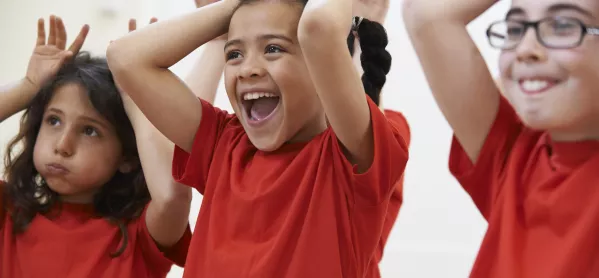Fun is defined as “light-hearted pleasure”. However, in my role as teacher, fun is serious business. As the late US educator Randy Pausch once said “never, ever underestimate the power of having fun”.
There is research to back up the assertions, studies that show students remember more when a teacher adds jokes to their presentation, that employees are more likely to try new approaches if their work environment is fun-filled, that the brain processes information more effectively when we’re feeling strong, positive emotions.
So, how can teachers increase the level of fun had in their classrooms while enabling pupils to make significant learning gains?
‘Ignore the nonsense: teaching is a huge amount of fun’
Teaching: Tough, tiring, but more fun than other things
‘Be honest with children - learning isn’t fun’
Social media: What’s the best thing you’ve seen happen in a school?
Research: Why learning the hard way is best
Perhaps by incorporating physical movement? I have previously set out an obstacle course of the digestive system (the length of the playground) that pupils were able to run through time and again before labelling a diagram and noting the functions of individual organs.
I’ve also used apps like Bloxels and Co-spaces that allow pupils to showcase their understanding of the respiratory system by creating computer games (complete with mucus monsters to take down) and opening an arcade for other classes in the school.
Music is a wonderful tool for creating an engaging atmosphere that catches the imaginations of your pupils. Whether it’s some ambient, spooky forest soundtrack for creative writing, or a Gregorian chant when learning about the Saxons, music can grab the attention, focus the mind and add a layer of excitement and anticipation about what is to come.
Games have a reputation in some ranks for minimising learning and maximising feuds, fights and off-task chatter. However, if they are simple, light in resources, allow everyone to play at once and don’t have a “you’re out” element, they can do wonders for developing recall.
In my class, to complement our times-table learning using the counting stick, pupils play finger Twister (a tabletop version of that game that’s nightmarish for the flexibility challenged), times-table pong with tennis balls on the carpet, and memory games with a simple set of cards, to name a few. Games such as Heads Up!, Articulate and Pictionary can also serve to help partners and small groups work at their own pace and recall facts and figures.
So, whether it’s turning off the lights and supplying students with torches, drawing upside down like Michelangelo, deflecting beanbags in a Roman legion testudo, or dancing the water cycle - however you choose to do it - let’s strive to make learning joyful, exciting and, yes, fun.
Blair Minchin is a primary school teacher in Edinburgh. He tweets @Mr_Minchin





